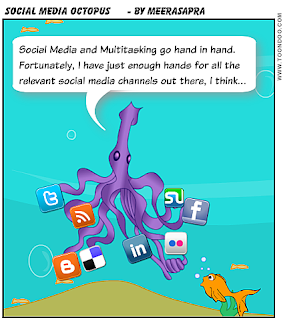RevGalBlogPals
is a network of women blogging about ministry and life and on Fridays, we play
Friday Five where someone chooses a topic and
we “play” by blogging our answer. I didn’t make Friday’s deadline but I'm posting anyway.
Inspired
by increasing movement from wired devices and even laptops to mobile devices, this
week’s questions asked how we’re using the internet. (Here’s a snapshot of the
trends from Pew Internet)
You can
play along too and leave your comments with your answers.
Here are the questions:
Q1. Do you
use social connections, like Facebook, Twitter, Linked-in or whatever else
there is? Describe how you use it/these.
Q2. Do you text on your cell phone? Work, friends, family?
Q3. Do you play any games? Which ones?
Q4. How do you predominantly use the various electronic devices you possess?
Q5. How do you feel about blogging? Are you as involved in blogging as when you
first started? What facilitates your blogging?
A1: Social
media opens the corner of my world, forging connections with people in other
parts of the U.S. and even across the pond.
On
Facebook, I am friends with people I can recognize on the street but I can
interact in groups or on pages with people with whom I share something in
common – parents at a school or club where my children are involved, classmates
at seminary or alumni from my high school or university. A decade ago, we might
have been connected through a bound paper directory but social media keeps us
up-to-date in real time.
Twitter makes
conversations possible with an even broader group of folks. Often, I have not met
the people I talk to on Twitter, and most of the time, physical geography makes
it unlikely that we ever will meet in real life. We might talk about churches
and social media (#chsocm), climbing (#climbchat), or Asheville (#avl). We
might have a Lutheran connection or a ministry connection or they might be
associated with someone who does. Beyond niche topics, Twitter delivers
breaking news as quickly as Google News or traditional broadcast channels. While
I don’t look at what’s trending on Twitter, but, unfiltered, Twitter reflects a
pulse of what is getting people excited, angry or otherwise engaged with the
world around them.
For the
ways I use Twitter, Hootsuite lets me create streams that I can
follow for any topic I want to follow and when I’m in a chat, I can see the
thread of conversation in a single column, making it easy to keep up and
contribute. Someone recently joked with me that researchers say if you’re over
38 you cannot manage social media multitasking; I answered I
would go and crawl back into my cave then, but I won’t. I like hearing voices
from different corners of the world and hearing opinions I might miss if I was
only in conversation with locals.
Linked In creates connections
to people in the workplace. Again, I generally know everyone in real life – we
have worked together in nonprofits, on projects in seminary or they are alumni
from the school where I work. Through our shared relationships, we have
opportunities to again engage more voices in conversation, whether I need advice
about a solicitation strategy, best practices or researching a new vendor.
What
surprised me is that as active as I am in these channels, I usually use them
from a desktop computer in my office or from my laptop at home. Mobile for me
remains the domain of texting, email and phone calls. I think that has as much
to do with my eyesight as my age, but I guess those could be related. The notable
exception is when I need information quickly. For googling information and maps,
my phone is the most convenient device and is indispensable for finding out a
store’s hours, what a word means, or discovering where I missed a turn.
A2: I
rarely text for work or socially, but it’s the primary mode of communication
for our immediate family. I think one of the reasons I don’t use it for other
interactions is that I have email synced on my phone, so I can silo external
communication on email accounts and preserve my privacy. That’s another sign of
my age – I think privacy is being redefined, or maybe deconstructed, by youth today. Opinions about what belongs in public conversation are widely varied,
A3: Games
are great time sinks for carpool lines, and I am easily addicted to backgammon
and bubble games while my daughters like Temple Run and Unblock Me, but if we
get tired of those, here is a top 50 list. What are
your favorites?
I’m out of
space and time so I’ll save the other questions as food for thought and hope
you share how you’re using social media and devices to enrich your learning and
life.
